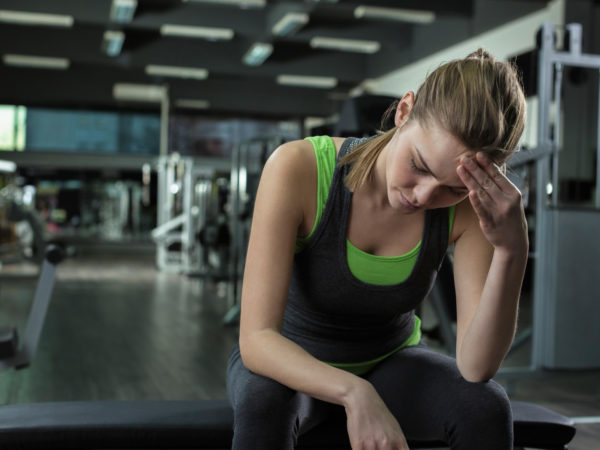Exercise When Sick?
Can you settle an argument? A friend insists that you’ll recover faster if you continue to exercise when you have a cold or flu. Wouldn’t it just make you sicker?
Andrew Weil, M.D. | June 12, 2018

If you exercise when you’re sick, chances are you’ll prolong rather than shorten your illness. The decision to exercise – or not – when you don’t feel well should depend on what’s wrong. As a general rule, it is OK to exercise if your symptoms occur from the neck up – that is if you have a cold that’s causing a runny or stuffy nose, nasal congestion, sneezing and a sore throat. Research on how exercise affects the severity and duration of the common cold has shown that it likely doesn’t matter one way or the other. However, if you work out at a gym, shedding virus or bacteria all over the treadmill, bike or other equipment is not being considerate of others.
If you have the flu, symptoms will be more severe: fever, fatigue, cough, chills, and muscle aches, and you will probably not have the energy to workout. Forcing yourself to exercise can further weaken you and delay recovery. Stay home, rest, and stay hydrated. Don’t buy into the idea that the best way to deal with a fever is to sweat it out. Exercising with a fever can lead to dehydration, undermine strength and endurance, and worsen your illness. Conserve your energy to help your immune system fight the infection, and keep in mind that you can spread the flu to others for up to a week after symptoms develop. Don’t resume your workouts until your temperature comes down and remains normal for at least 24 hours.
We know that moderate exercise boosts immunity rapidly – in as little as 20 minutes – but intense exercise can have the opposite effect. Studies have shown that the physical stress of vigorous exercise can depress the immune system for up to three days, making you more susceptible to infection for the duration. The aftereffects can be long lasting. One study showed that athletes who continued to work out despite having the flu developed chronic fatigue that in some cases lasted for years.
After you’ve been sick, your best bet is to return to exercise gradually. Make sure you no longer feel weak or have any muscle aches before you start. Take it easy for a week or two before you resume vigorous exercise.
Andrew Weil, M.D.
Source:
T.G. Weidner et al, “The effect of exercise training on the severity and duration of a viral upper respiratory illness.” Medicine and Science in Sports and Exercise, November 1998












